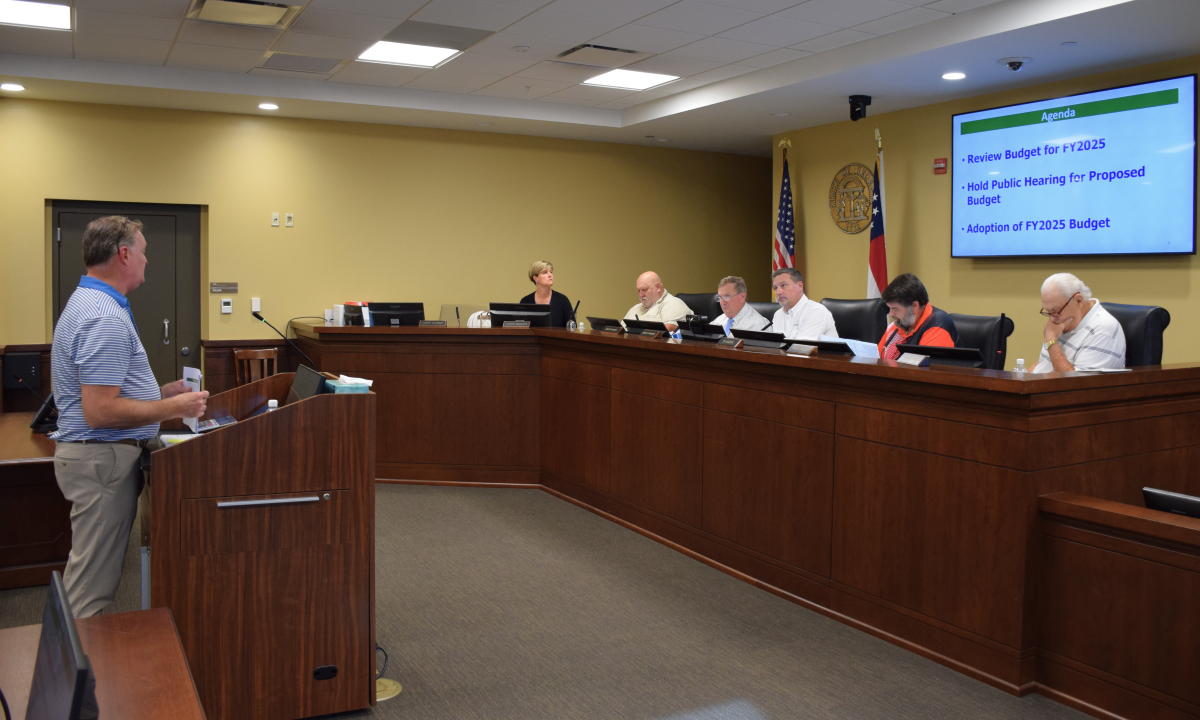State officials are contacting six consulting firms to solicit proposals for a $2.6 million contract to develop health care waivers for Medicaid and the private insurance market in Georgia.
This work is part of recently passed legislation that was pushed by Gov. Brian Kemp. Under the legislation, Georgia can request federal permission (i.e., a waiver) to enact changes to its Medicaid program, potentially adding more people to the rolls.
A second waiver would address the insurance exchange, created by the Affordable Care Act (ACA) for individuals and families who don’t get employer or government coverage.
 “By leveraging the private sector to develop waivers, Georgia will lead the way in health care innovation – focusing on lowering costs, improving access, protecting those with pre-existing conditions, and increasing quality of care in every region of our state,’’ Kemp said in a statement Monday.
“By leveraging the private sector to develop waivers, Georgia will lead the way in health care innovation – focusing on lowering costs, improving access, protecting those with pre-existing conditions, and increasing quality of care in every region of our state,’’ Kemp said in a statement Monday.
“As we move into the next phase of this process, we will continue to work closely with federal officials to develop the best options for Georgia patients and families,” he said.
A spokeswoman for Kemp, Candice Broce, said Monday that state officials met recently in Washington with federal officials to talk about the waiver effort. The federal officials included representatives from the Department of Health and Human Services and the Department of the Treasury, as well as from the Centers for Medicare & Medicaid Services.
Broce called the conversations with the feds “productive.”
“They know we want to move fairly quickly and want to submit waivers by the end of the year,’’ she said.
 The six consulting firms approved by the state for the bid are Accenture, Deloitte Consulting, Ernst & Young, KPMG, McKinsey & Company, and Public Consulting Group. The companies were already qualified to bid in the areas of operations and strategy planning by the state Department of Administrative Services, she said.
The six consulting firms approved by the state for the bid are Accenture, Deloitte Consulting, Ernst & Young, KPMG, McKinsey & Company, and Public Consulting Group. The companies were already qualified to bid in the areas of operations and strategy planning by the state Department of Administrative Services, she said.
The six firms were identified ‘‘as having robust health care experience,’’ Broce told GHN on Monday.
The firms face a tight deadline, May 20, to submit proposals to state officials, and the pace will continue to be fairly rapid.
The state Department of Community Health (DCH) and the Governor’s Office are expected to select the winner in early June. The winning firm will then have to develop the waiver proposals by the end of the year, when Georgia plans to submit those plans to the feds.
Broce said DCH could have gone ahead and made a final selection for a single vendor, but that the administration opted for a competitive process.
The consulting firm would be eligible for $1.6 million in state funds and $1 million in matching federal money.
 The consulting contract will be highly sought after, said Chris Kane, a consultant with Progressive Healthcare.
The consulting contract will be highly sought after, said Chris Kane, a consultant with Progressive Healthcare.
“For consulting firms, there is the initial project and the potential for ongoing implementation work as the state refines its Medicaid plan,’’ Kane said. “Although RFPs [requests for proposal] are inherently tedious, most firms have a template with qualifications and work plans that can be refined to fit the specific needs of the prospective client’s needs.’’
By using such a contract, he added, “the state obtains objective advisory services and potential ‘cover’ if anything goes wrong.’’
Each waiver request would require federal approval. The legislation to hire a consulting firm, Senate Bill 106, passed the General Assembly session easily and was quickly signed into law.
Democrats in the General Assembly unsuccessfully fought the waiver legislation, arguing that a full Medicaid expansion — which under the ACA is an option for states — would cover more Georgians at a lower cost than the Kemp proposal would. Georgia has among the highest rates of uninsured in the nation.
Kemp’s plan envisions potentially covering people at up to 100 percent of the federal poverty level – roughly $12,500 of annual income for an individual — whereas regular expansion gives Medicaid to people at up to 138 percent of poverty.
At full expansion, the federal match is at 90 percent under the ACA. At the poverty level, the match is expected to be the normal 67 percent, though Trump administration officials say they may consider the higher match figure.
Kemp’s private insurance waiver seeks to change the rules in the individual market. Those changes, he said recently, “could drive down the cost of health insurance for those who buy it on the private market.’’
Based on other states’ experience, the insurance exchange waiver could lead to a reinsurance program that has the potential to stabilize premiums for individuals.
But Democrats have said the exchange waiver could spark the proliferation of health plans that don’t have the same pre-existing condition protections as the ACA provides, or could reduce the number of “essential’’ health benefits covered.







